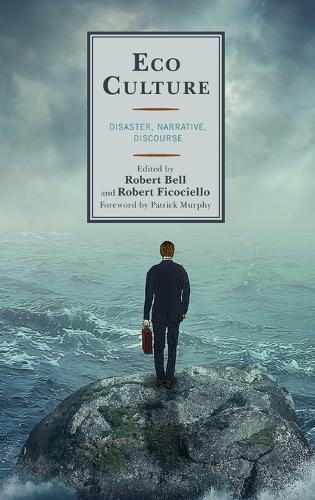
Eco Culture: Disaster, Narrative, Discourse
(Hardback)
Publishing Details
Eco Culture: Disaster, Narrative, Discourse
By (Author) Robert Bell
Edited by Robert Ficociello
Foreword by Patrick Murphy
Contributions by Kirk Boyle
Contributions by Charles Byler
Contributions by Kristen Chamberlain
Contributions by Danielle Crawford
Contributions by Nicole L. Freiner
Contributions by Stephanie Hankinson
Contributions by Peer Illner
Bloomsbury Publishing PLC
Lexington Books
15th November 2017
United States
Classifications
Professional and Scholarly
Non Fiction
Social impact of environmental issues
Cultural studies
304.2
Physical Properties
Hardback
278
Width 160mm, Height 237mm, Spine 23mm
535g
Description
The edited collection, Eco Culture: Disaster, Narrative, Discourse, opens a conversation about the mediated relationship between culture and ecology. The dynamic between these two great forces comes into stark relief when a disasterin its myriad forms and narrativesreveals the fragility of our ecological and cultural landscapes. Disasters are the clashing of culture and ecology in violent and tragic ways, and the results of each clash create profound effects to both. So much so, in fact, that the terms ecology and culture are past separation. We are far removed from their prior historical binaric connection, and they coincide through a supplementary role to each other. Ecology and culture are unified.
Reviews
What does ecocriticism have to say about crises as diverse as the Boston Marathon bombing, the Fukushima Daiichi nuclear catastrophe, and the ecological and social devastation caused by oil exploitation in the Niger Delta Read this book and find out. This fascinating and insightful volume joins the growing number of ecocritical projects exploring risk, meaning, resistance, and recovery in the contexts of natural and technological disaster. Eco Culture is a valuable and timely collection. -- Scott Slovic, University of Idaho, coeditor of The Routledge Handbook of Ecocriticism and Environmental Communication
Robert Bell and Robert Ficociellos Eco Culture: Disaster, Narrative, Discourse affirms the importance of narrative resistance to the prevalent discursive and material forms of oppression accompanying ecological disasters. Challenging the mainstream and often manipulative disaster narratives written from within neoliberal capitalist ideologies, the contributors in this volume seek alternative narrative paths for understanding the complex issues of disaster cultures: slow violence, resilience, vulnerability, crime, militarism, systems of control, colonialist practices, technological mastery, socio-emotional traumas, adaptive politics, socio-economic decay, and more. Since each chapter enacts 'narrative responsibility' as a strategy of resistance to the hegemonic discourses of human-induced ecological disasters, this volume will be enormously attractive for those who care about environmental issues. -- Serpil Oppermann, Professor of English, Hacettepe University, and President of EASLCE
Author Bio
Robert Bell is the director for learning resources and writing across the curriculum at Loyola University New Orleans. Robert Ficociello is assistant professor of writing at Holy Family University.
